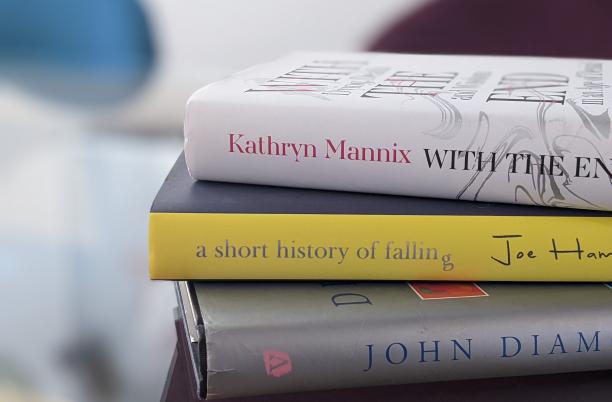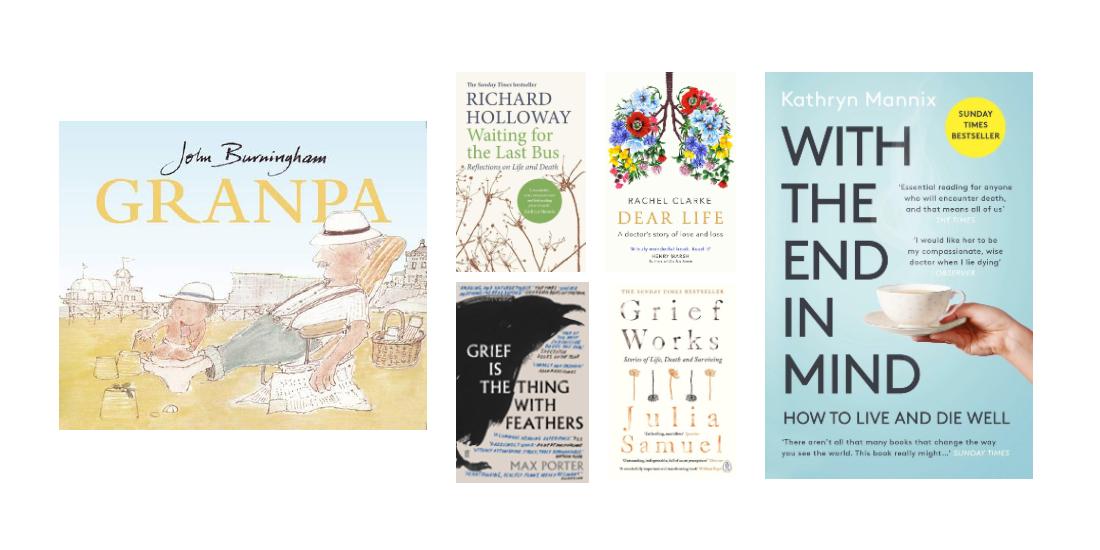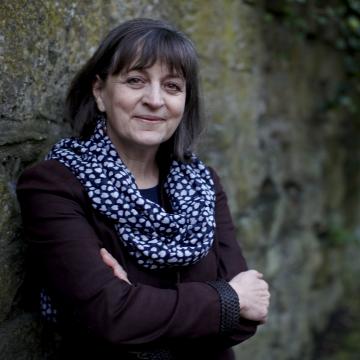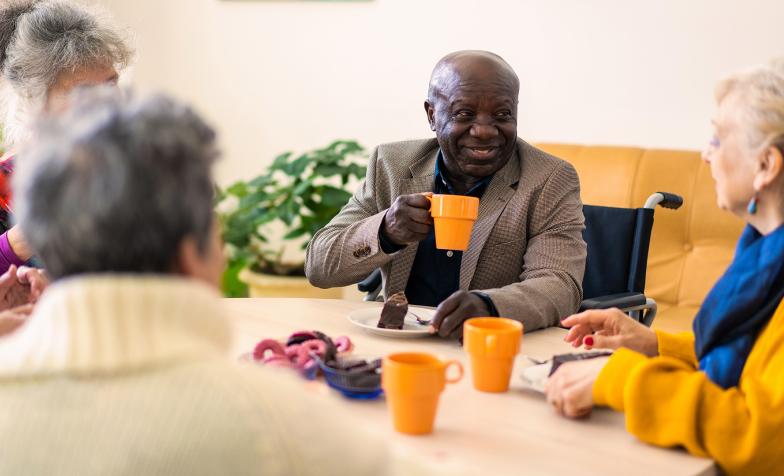

A recommended selection of the best books to help us think about death, dying and grief, from the author of With the End in Mind, Dr Kathryn Mannix.
A reading list to help when someone is dying
Talking about death, dying and grief can be tough, so to help people have these conversations, we’ve been collaborating with artists and writers to put together useful grief and bereavement resources.
In this guest blog post, author and former palliative care doctor Kathryn Mannix shares her suggestions of the best adult and children’s books to read when someone is dying, and books to help deal with grief.
Death and dying in literature
"Books take us to new places in our minds, open us up to new ideas and expand our imagination, knowledge and world-view. The most challenging of human experiences have always featured in storytelling." ~ Kathryn Mannix
Death, dying and grief occur repeatedly in fiction, allowing us to explore them through the mind’s eye of characters; non-fiction offers us a variety of insights into living and dying, grief and mourning, written by individuals describing their own experiences and by experts offering a summary of current wisdom.
Death in children’s literature
So where shall we start? Death is included in children’s literature, and it is important that it is. Experiencing the death of characters in a book is an introduction to the fact of mortality: Beth March in Little Women, Matthew Cuthbert in Anne of Green Gables, Mog the beloved protagonist of the Mog series of picture books, Badger in Badger’s Parting Gifts. Other writers discuss death in children’s non-fiction: Michael Rosen’s Sad Book gives permission for sadness, and also for happy times.
Death in adult non-fiction
In adult non-fiction, 'pathobiographies' give us a glimpse into the world of people who know themselves to be terminally ill.
Before I Say Goodbye (Ruth Picardie), PWA (Oscar Moor), C: Because Cowards Get Cancer Too (John Diamond) were written by journalists, and their fine writing popularised the genre.
Later thought-provoking works include When Breath Becomes Air (Paul Kalanithi), The Unwinding of the Miracle (Julie Yip-Williams) and, my personal favourite for the beauty of his writing, Joe Hammond’s A Short History of Falling, in which he describes the onset and progression of his motor neurone disease alongside his love and fascination for his family and for nature.
Insights into dying from ‘expert witnesses’
Whilst autobiography describes a single person’s view and experience, books by ‘expert witnesses’ offer us a different insight as they lay out the territory from the common to the rare, offering the reader a guided tour of their subject.
One of the earliest of these, and still both relevant and compelling, Sherwin B Nuland’s How We Die offers a medical interpretation of the mechanisms that bring about dying from a variety of causes. Both factual and fascinating, it confines itself to information with little emotional exploration.
In contrast, The Way We Die Now is physician Seamus O’Mahoney’s heartfelt cry for a new attitude to end of life care in hospitals, where he sees death ignored and futile treatments prioritised.
Atul Gawande’s Being Mortal is a beautiful philosophical exploration of modern medicine’s loss of focus on ‘what matters in the end,’ and a plea to his fellow American doctors to discuss dying honestly and prioritise comfort when death can no longer be postponed.

Other useful books to read when someone is dying
1. Granpa by John Burningham
A picture book for younger children (and all of us) remembering happy times with Granpa, now that he has died and his chair is empty. A great way to engage in family discussion about the death of a person we love.
2. Waiting for the Last Bus by Richard Holloway
A wise and humble exploration of older age, and the approach of life’s end. How should we face our own mortality? Warm, kind and gentle.
3. Dear Life by Rachel Clarke
A palliative care doctor reflects on her work, on how dying can be made bearable, and the importance of talking about death realistically.
4. Grief is the Thing with Feathers by Max Porter
A fictional blend of poetry and prose describing the grief of a widower and his young sons following the death of their mother. A beautiful and validating exploration of grieving, laced with wry humour, suitable for teens, young adults and grown-ups.
5. Grief Works by Julia Samuel
Using stories from her practice, an experienced grief therapist talks us through the pain and challenge of grief and offers tools that all of us can use to help us cope with bereavement

Written by Kathryn Mannix
Kathryn Mannix is a former palliative care doctor, author of With the End in Mind and Listen, and campaigner for better understanding and less fear of dying.
Image: Craig Fordham
More information on death, dying and grief
Further information and resources on how to deal with grief, death or dying. Find out more about our Dying Matters campaign, Dying Matters events in your area, or explore our Dying Matters resources.


